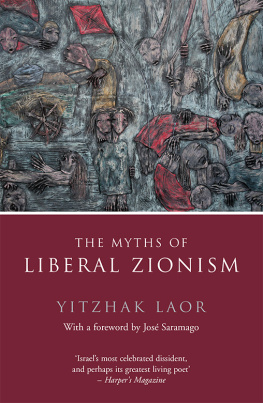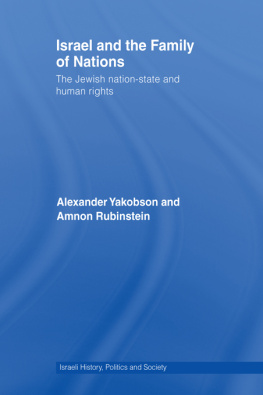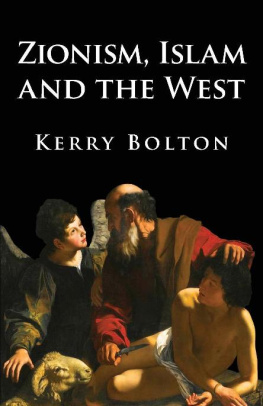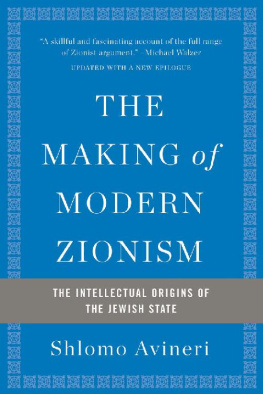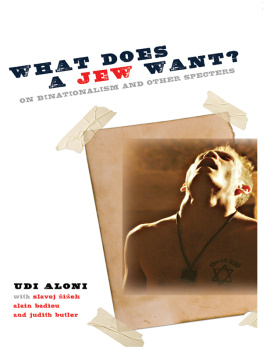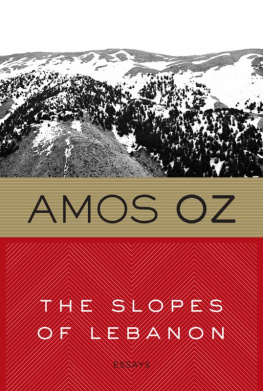The importance of the analyses contained in this book can be measured against its principal objective: to disentangle an intricate ball of twine, revealing how deep contradictions within Israeli society are and how the great majority of the population seems to have decided to support the most daring positions of its government with regard to the treatment meted out to the Palestinians. This is treatment characterized, as we all know, by a contempt and an intolerance which, on a practical level, have led to the extreme of denying any degree of humanity to the Palestinian people, at times even denying their basic right to existence. When Yitzhak Laor wrote The Myths of Liberal Zionism, it was almost impossible to foresee the day when the president of the United States would come to insist on the withdrawal of the settlements (over 200 settlements ranging from the legal ones, meaning those authorized and built according to the will of the government in Tel Aviv, and the illegal ones, those to which the government turns a blind eye, inhabited, all told, by over half a million residents whose presence is the major obstacle to peace today), not to mention the recognition of the elementary right of the Palestinians to their own independent and viable state. This was something already noted by George Bush Sr, when he forced Israel to recognize that talking at one and the same time about peace and about the settlements was an irrational and inherent contradiction. Former Prime Minister Ehud Olmert seems to have been aware of this when he declared to Haaretz, in November 2007, that if a speedy solution and a division into the two states were not rapidly arrived at the state of Israel would be finished. He didnt go so far as to do anything to achieve the resolution of this problem, but his words at least still resonate. They help us to comprehend how the settlers were always the sword of Damocles, suspended over the Israeli governments, and now more than ever, over the head of Binyamin Netanyahu.
PREFACE TO THE
ENGLISH-LANGUAGE EDITION
I once visited the United States shortly after an incident in which a college student had opened fire and killed several of his fellow students on the campus of Virginia Tech. The taxi driver who took me from JFK Airport to Washington Square in New York heard I was from Israel, and therefore excitedly told me about the Israeli professor who protected his students and was shot to death. He survived the Nazi concentration camps to die here as a hero, the driver told me. I was truly impressed by this historicization, and when I spoke to my wife on the phone later that day I told her about it. She said she had heard the same description on CNN, and, indeed, I later heard the same story from President Bush, or his speech writers, on TV.
I think I know how to write about our present time and place to people who live alongside me, who use the same language, even though I belong to a political minority. I am more skeptical about my ability to talk about this time and place to outsiders. Not just because our history long ago turned into a collection of soundbites, or because it is very easy for a Hebrew writer to tell his parents life story as a kind of illustration of the dramatic history of his people in the first half of the twentieth century, or to tell my own life story as an illustration of the dramatic history of the country I have lived in over the second half of the twentieth century. I am skeptical of my ability because I find it extremely hard to try to sharpen my questions, mainly questions about the nature of the current historical moment in Israel, the place where I was born and will probably die. Twenty years ago I wrote a poem in which I tried to explain Israeli aggressiveness thus:
We didnt grow up where our fathers grew up.
They didnt grow up where
Their fathers did. We learnt not to
Feel nostalgic (we can feel nostalgic for any tombstone
Decided upon), we dont belong any
Where (we shall belong easily to anything
When demanded), we move across
Countries, we sleep in fancy
Hotels, we sleep in cold
Barns, we love only in order to be
Loved, we rape only
To be remembered, we enjoy
Only so as to register ownership, destroying
Mainly villages, declaring ownership
And leaving, hating peasants, mainly
Peasants (if necessary, well also cultivate
The land).
I didnt content myself with writing poetry, because I thought that through it I could not capture all this history which so occupies me: We didnt grow up where our fathers grew up. They didnt grow up where their fathers did.
What in this eternal foreignness to the landscape that ones father loved in his childhood, or that ones fathers father loved in his childhood, what in this foreignness is relevant to our patriotism (always abstract) and what is not? I am not sure that I have good answers. And yet I am trying to ask questions about the ability to write beyond images, beyond the simple images that the TV news chatters about.
There is something about our Israeli lives, about how we perceive ourselves and how we perceive others perception of us, that is entirely connected to the European origins of our concept of nationality, democracy and political structure.
Even though our Israeli lives are very dependent on the United States of America, the fact is that when we, in the heart of the Middle East, talk to our metropolis, yearn for its love, ask for its moral support and recognition of our cultural values, we are not really talking to the United States, maybe because we take its love for grantedhence we do not make any real efforts to desire its desirebut maybe we simply do not really understand or know it. And though understanding the US is almost a profession in Israeli journalism, and though we are very up to date with most US TV drama series, soap operas and sitcoms, even we understand that the United States is not just what we see on TV, or in Hollywood movies, or via the politicians who visit us on their way to the White House.
Perhaps the United States does not really understand us either, if it is even possible to talk of the United States in the singular, as a single entity that can or cannot understand something. It is clear that the easiest story to tell is the kitsch one, like the description of the cab driver who took me from JFK to Washington Square, but I started by explaining how difficult I find it to write for Americans in order to suggest that we should begin from those places where we can see eye to eye, and peer into a new dimension.

